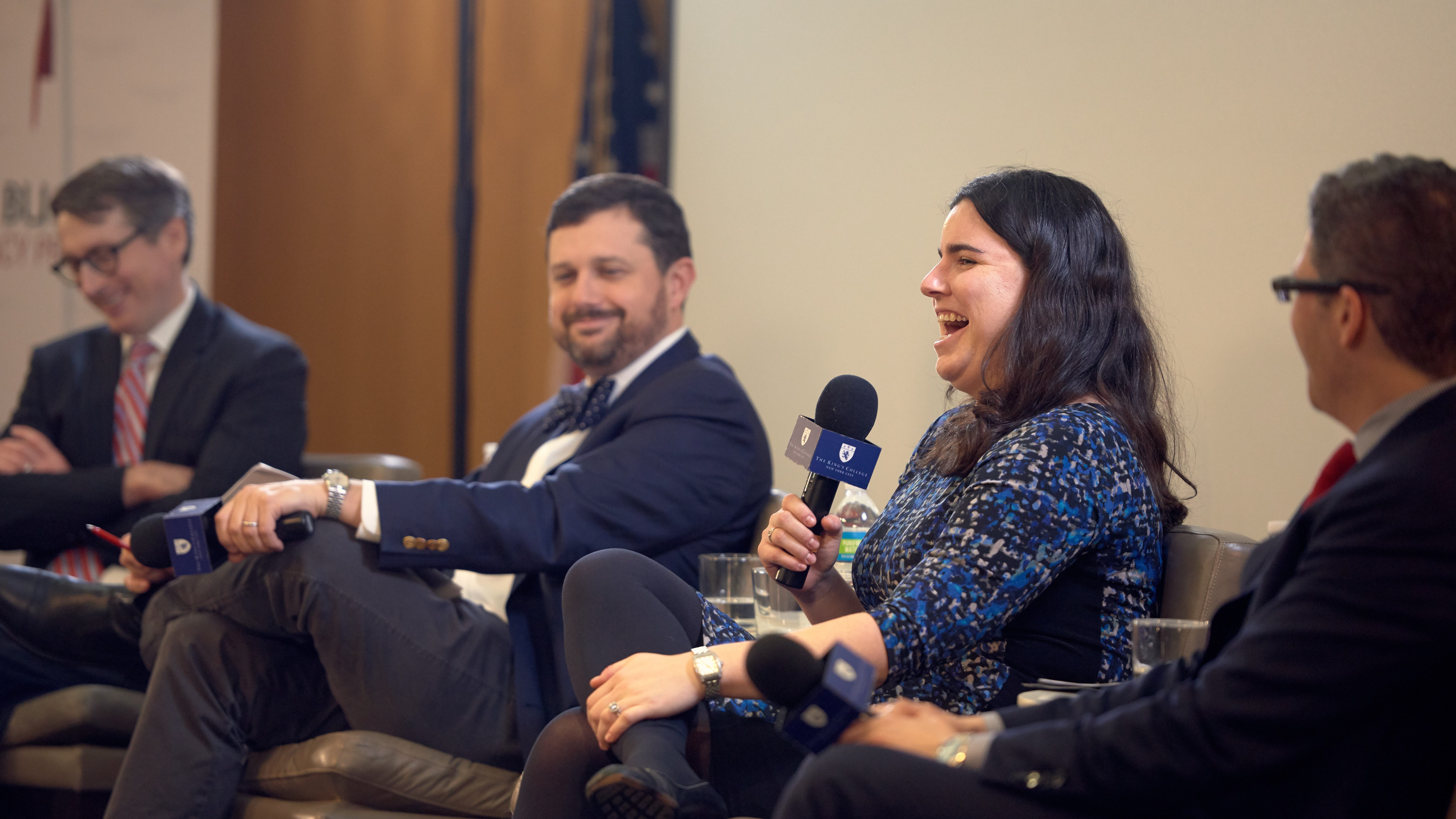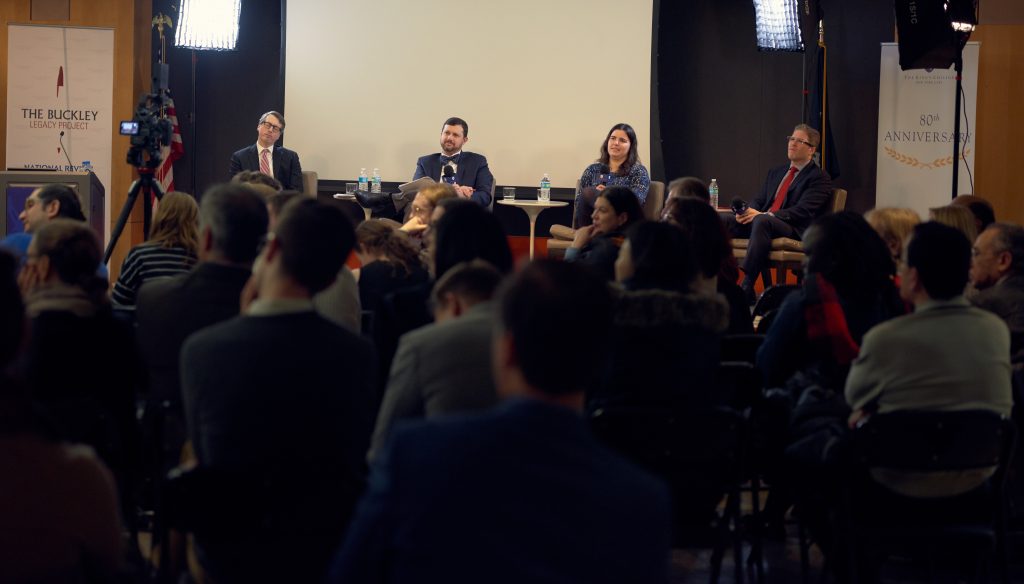King’s Celebrates the Life and Legacy of William F. Buckley
On Monday, November 26, The King’s College and the National Review Institute held a reception and panel discussion to celebrate the life and legacy of William F. Buckley, Jr.

On Monday, November 26, The King’s College and the National Review Institute held a reception and panel discussion to celebrate the life and legacy of William F. Buckley, Jr. As the founder of National Review and the host of the television show Firing Line, Buckley was a highly influential conservative author and commentator. He was also known for his nationally syndicated newspaper column and his numerous spy novels. Panelists included Rich Lowry, editor-in-chief of National Review; James Panero, executive director of The New Criterion; Lauren Noble, founder of the William F. Buckley Program at Yale University; and Lawrence Perelman, managing director of Semantix Creative Group.
The panel discussion was hosted by Paul Glader, associate professor of Journalism, Media and Entrepreneurship and director of the McCandlish Phillips Journalism Institute. Comments from panel guests were interspersed with clips from Firing Line showcasing Buckley’s wit and charm as well as his famous transatlantic accent.
Lowry discussed Buckley’s ability to wear many hats, noting that there is not one man today who can claim to be the most prominent columnist, interviewer, editor, and conservative popularizer. Buckley was all of these simultaneously. Moreover, “He was unabashedly highbrow, and unabashedly himself,” said Lowry. Buckley believed in the formative power of ideas, and Lowry concluded with a quote from Buckley on why Americans should continue to be grateful for the intellectual tradition of the West, from which we derive our own ideas of liberty and democracy.
Panero, who has written extensively on art and culture, spoke to Buckley’s role in making conservatism culturally attractive. “Buckley revealed the conservative personality, and shared its virtuosity with joy,” said Panero. He then described the process of helping Buckley write one of his spy novels. This story itself could have been set in a James Bond novel, replete as it was with exotic luxury and class. Beginning with a lighthearted anecdote about burning out the clutch of Buckley’s Peugeot, Panero detailed how Buckley’s work day involved plot development at a private restaurant atop his chalet, a casual midday ski break, and an evening of classical music, wine, and cigars. Despite his affluence, Buckley remained humble, and was always eager to hear the opinions of those around him. As Panero said, “Bill was born into the good life, but his interest was in the eternal life.” It is no therefore no mystery why Buckley was able to reach the hearts and minds of so many.
Noble, who like Buckley is a graduate of Yale, recalled Buckley’s largesse and love of institutions, including his alma mater. She said, “Buckley devoted a great deal of energy not only to dismantling the arguments of the liberal establishment, but also to helping conservatives compete for elite institutions.” During his lifetime, Buckley founded not only National Review, but also Young Americans for Freedom and, along with Frank Chodorov, the Intercollegiate Studies Institute, organizations which continue to energize and support young conservatives today.
Perelman’s comments affirmed what others had said about the unique charm of Buckley’s personality, and Buckley’s personal generosity towards his friends. Perelman was with Buckley on the night before his death, for Perelman had planned to perform classical piano music for Buckley on the following day, as was their habit. Buckley was an empathetic listener and fan of the arts, classical piano in particular. Perelman’s comments were followed by a clip from Firing Line in which Buckley allowed his guest Rosalyn Tureck to perform an uninterrupted piano sonata, something which all panelists agreed would be regrettably impossible in the current media climate.
During the Q&A portion of the event, audience members inquired about the future of the conservative movement and the rise of populism. Panelists, however, remained optimistic about Buckley’s legacy. A final question about Buckley’s Catholicism prompted panelists to reflect that, although he was not outspoken about his religion, Buckley’s gratitude and generosity likely stemmed from a deep-seated faith. A recurring theme in the panelists’ comments was the larger-than-life quality of Buckley’s personality, which continues to permeate through the institutions he has left behind.
“He was and is in the pantheon of great men, intellectual giants, and artistic geniuses,” said Perelman, “and it was an honor to have my life changed and enriched by William F. Buckley, Jr.”






